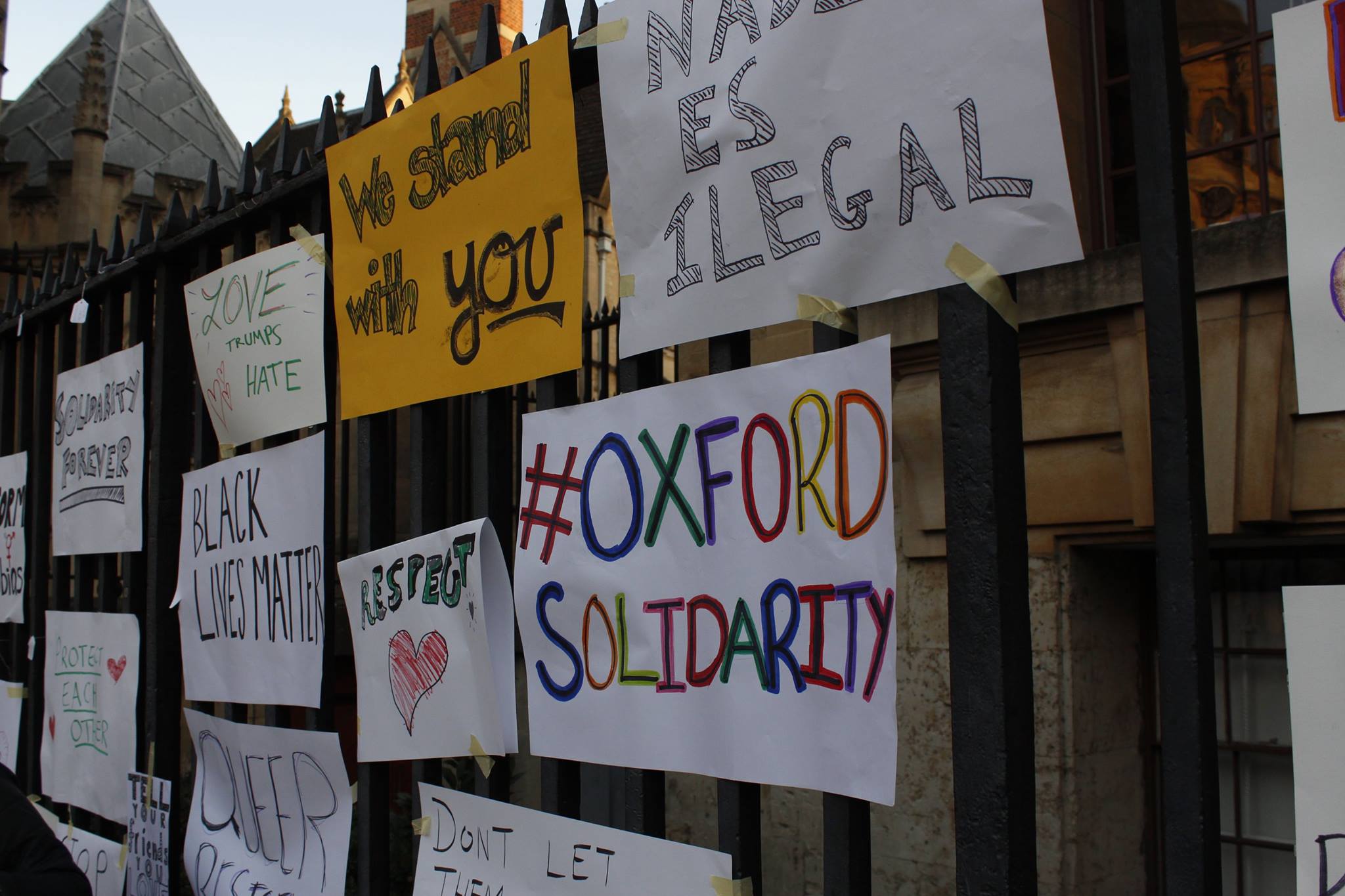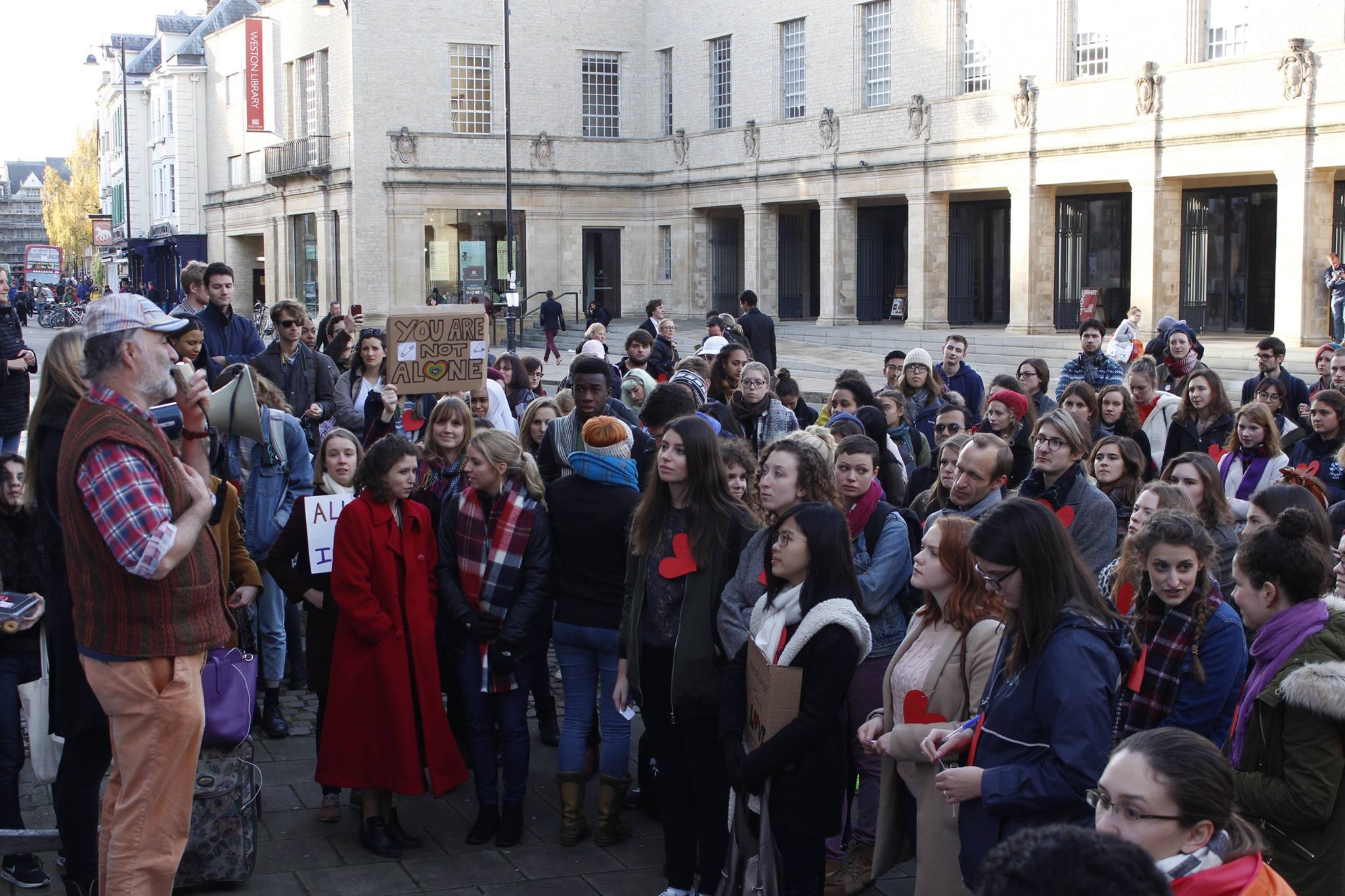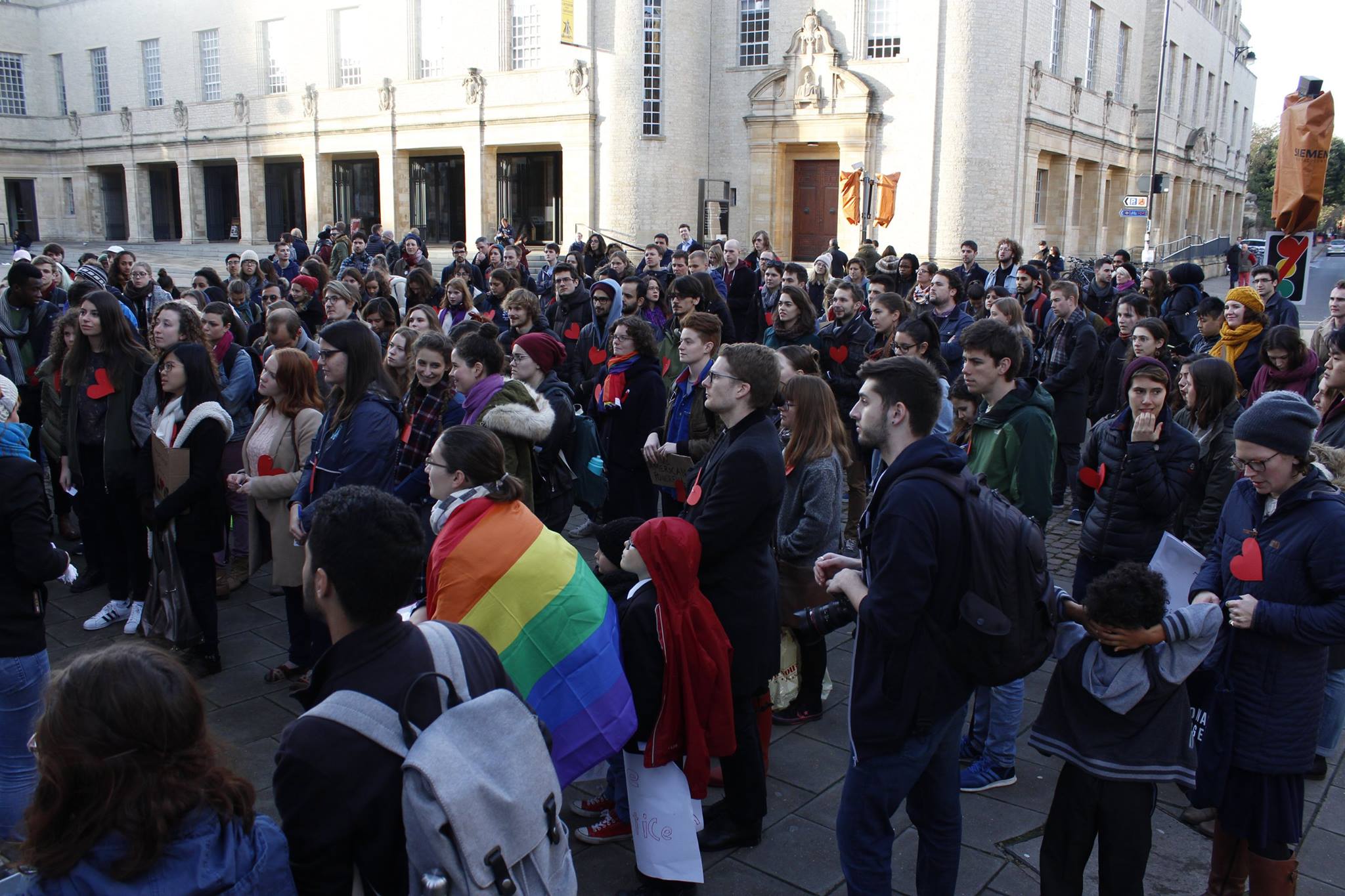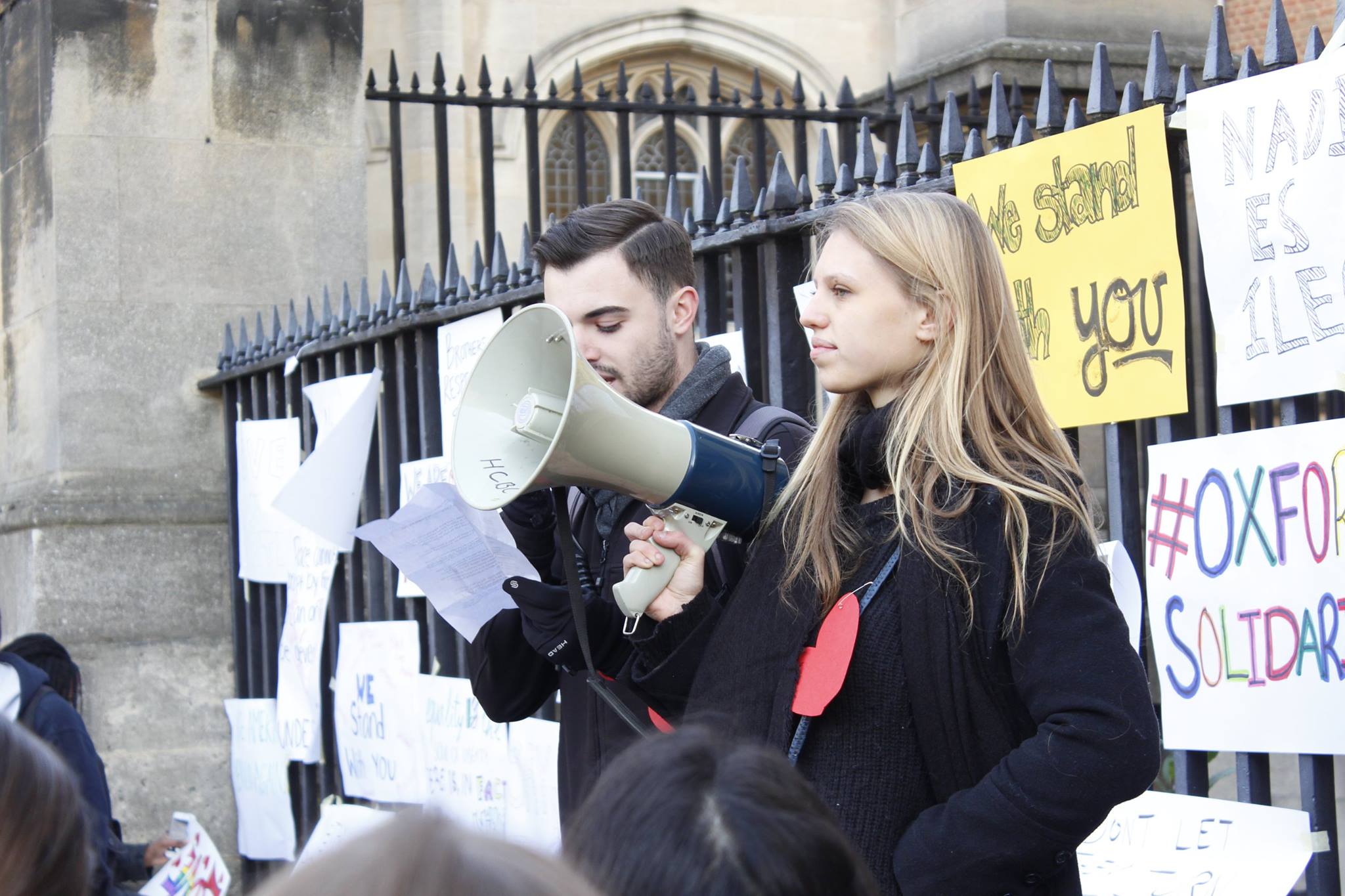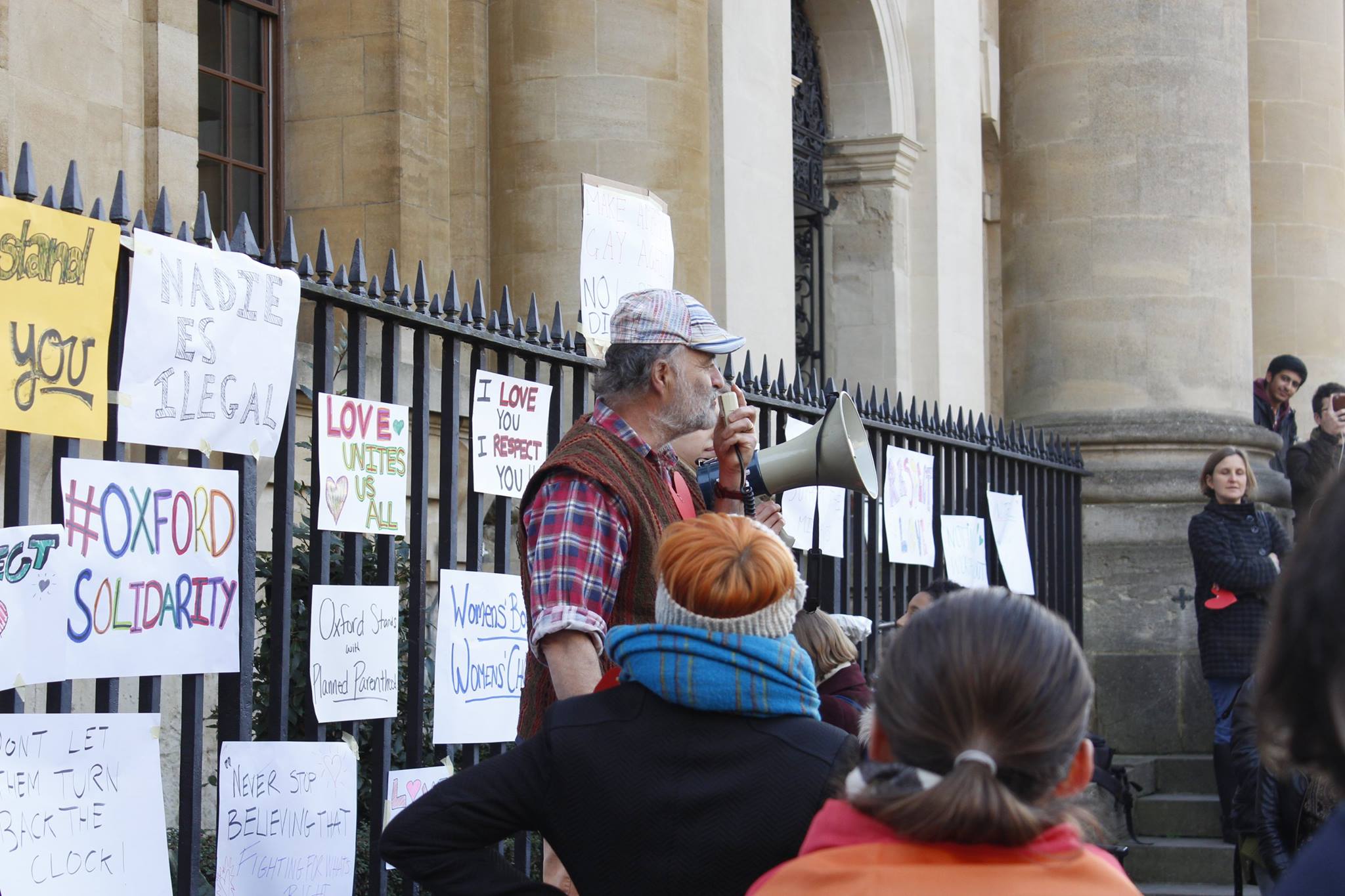Queer people are known for being a major part of the performing world, but it’s rare for there to be a show dedicated to showcasing queer talent. Luckily, the OUSU LGBTQ Campaign organised the Queer Charity Cabaret, featuring a variety of performances from Oxford students in support of The Terrence Higgins Trust and the Lesbian and Gay Immigration Group.
The night starts off well, with our host Katt Walton singing a rendition of ‘Wilkommen’ from Cabaret. Dressed in a corset, a black shiny shirt and nipple tape Walton’s performance sets the tone for a night where boundaries are not only crossed but torn down. The first act are The Oxford Commas acapella group. Maintaining the high standard set by Walton, their harmonies and arrangements are enjoyable, especially in their rendition of ‘We Found Love’. Their performance is upbeat although the solos could have been more audible—at times they are almost drowned out by the enthusiastic backing singers. Special mention goes to Ben Christopher, who did arrangements and whose top note is especially high and to Jake Topping, whose beat-boxing is impressive to say the least. The other musical act of the night is sweet-voiced soprano Cassie White, who gives us a tender cover of ‘I Push up My Glasses’. The emotion in her voice conveys the feeling of loving someone from afar.
Vivian Holmes’ performance—a monologue about self-awareness and performance art—falls somewhere between genres. There are occasional moments of comedy, and she is self-accompanied by a looped guitar. It is a mashup of genres and while I get that the point of the piece is to question art I think that at times there is too much going on. The mashup becomes a bit overwhelming and at some points the audience can’t hear Vivian.
The night contains a lot of poetry. Juliana Lewis is the first poet to perform—her poetry is rich in imagery and politics, and ranges from emotive to calmly beautiful. The next poet, Zubair Dhalla, performs a piece about clichés and unrequited love for a boy at school. Focussing more on rhythm and rhyme, this piece has a faster pace than Lewis’ work and is definitely a poem written to be heard, and which, added to the combination of humour and romance and self-awareness of being a poet at a cabaret night, made this my favourite act of the night. Elizabeth Yule performs a beautiful poem called ‘Lessons I Learned in the In Between’ about the process of understanding yourself, pride, and love. The final poetry act are Patrick and Archie, who perform a hard hitting poem about the discrimination that queer people can face from their families and from society. Although harder hitting than the rest of the acts it is perhaps the most important of the night.
There is some good sketch comedy over the course of the night. The duo Not Your Nice Girl, backed up by Pissy Feet, perform some sketches on the way women are told to act to appear sexual, a song about the humour in lad culture, like speaking down to or over women, and a monologue performed by a cat about the way humans frustratingly assign their views of gender and sexuality on animals. We get more physical comedy and sketches from Pissy Feet later in the show. I especially enjoy the sketch about a PTA meeting concerning the outbreak of lesbianism, which played off stereotypes and overreactions. Another particularly funny sketch is about assigning human attitudes to sex and gender to animals, this time via a nature documentary where the goldfish question the narration (and then forget). All five members embody and switch characters easily, and it is a fun section
The audience are invited to participate over the interval by drawing naked model LG Simpkins. A tiara is awarded to the best drawing, all contributions are collected (I think to be taken home by LG), and a special mention goes to a paper sculpture of Laura straddling the chair.
The night wraps up with a performance by drag queen Dinah Lux performing a lip-sync and striptease. Lux maintains a sassy attitude throughout the dance which gives the performance real character and the splits performed at the end are impressive—doubly so because of the six inch heels she is wearing!
The night is full of talent in a variety of performance-art branches. The organisers have managed to find acts from Oxford students both past and present, and put them together to form a show that makes you laugh, cry, and gives you a great night, all for a good cause.



